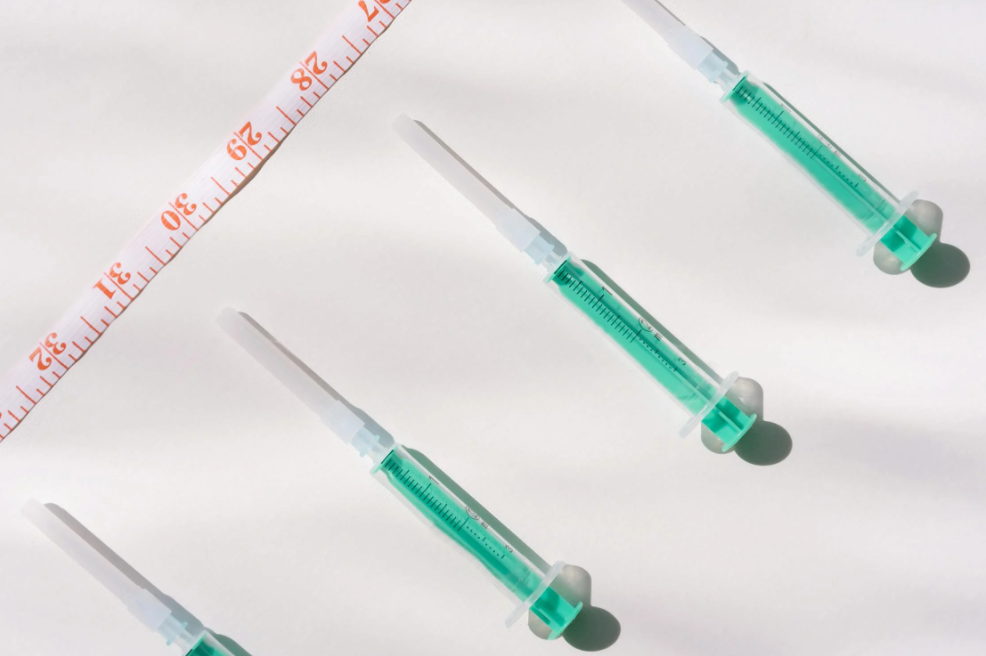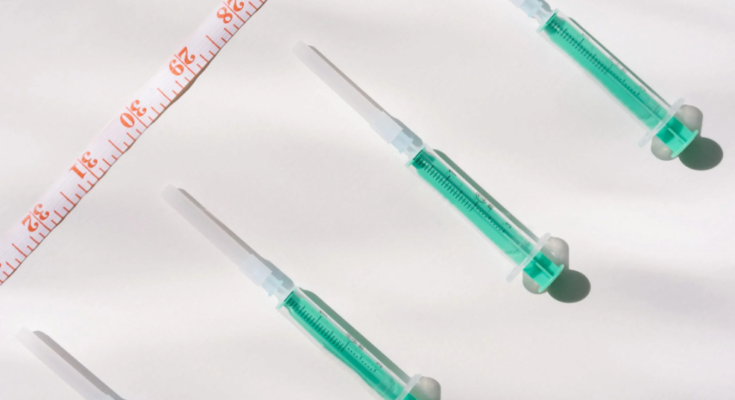Introduction
what is the best injection for weight loss?
Shedding pounds is more than a beauty endeavor—it’s often a health need. Lessening your risk for diabetes and heart disease, not to mention your mental health and self-image, can significantly improve your quality of life if you can get rid of that extra weight. However, when dieting and exercise don’t cut it, medical weight loss injections could be the solution. Injectable medications have recently become the crowning jewel in the fight against being overweight and/or obese.
Some injectable medications are recycled diabetes medications, and other injectables are intended for weight loss only. With so many injectables available, what an excellent question: What injection is best for weight loss? In this article, we’ll summarize the leading weight loss injections, how they work, their potential benefits and side effects, and lastly, help you choose which is best for your health and future goals.
What Are Weight Loss Injections?
Weight loss injections are prescription medications given by subcutaneous injection (under the skin) that promote weight loss by: –
- Suppressing appetite
- Improving insulin sensitivity
- Lowering blood sugar levels
- Delaying gastric emptying
- Increasing feelings of fullness
These injections are not magic bullets. They will only be effective when used with a healthy diet and changes in lifestyle and exercise. Most of these medications have been prescribed for patients with a BMI of 30, or 27 and higher with associated comorbidities like type 2 diabetes and hypertension.
Top Weight Loss Injections in 2025
Let’s look at the most popular and scientifically supported weight loss injections on the market at present:
1. Semaglutide (Wegovy and Ozempic)
Brand Names: Wegovy (for weight loss), Ozempic (for type 2 diabetes) Mechanism of Action: Semaglutide is a GLP-1 receptor agonist that acts like the hormone glucagon-like peptide-1. It increases insulin secretion, slows gastric emptying, and reduces appetite, resulting in patients feeling full longer and consuming less.
Efficacy:
In a 68-week clinical trial, participants experienced an average weight loss of 14.9% of their body weight taking Wegovy.
Dosage:
Administered once a week via subcutaneous injection.
Pros:
- FDA-approved and clinically established Once-weekly dosing (very convenient)
- Results are significant.
- May reduce blood pressure or cholesterol
Cons:
- Common side effects include nausea, vomiting, and diarrhea.
- Very expensive if not covered by insurance ($1,300+ a month)
- Not recommended for any patient with a personal or family history of any kind of thyroid cancer.
2. Tirzepatide (Zepbound & Mounjaro)
Effectiveness:
Clinical trials have demonstrated a weight loss of 21.4% of body weight, represents the greatest weight loss of any injectable currently approved for weight loss.
Dosage:
Inject once a week
Pros:
- Explosive weight loss results
- Potentially reverses insulin resistance
- Decreased hunger, cravings
- Effective for patients with diabetes and those without diabetes
Cons:
- Very expensive (~$1,200 – $1,500 a month without insurance)
- Safety and efficacy at 10 years or more is still being evaluated.
- Similar side effect profile to semaglutide
3. Liraglutide (Saxenda)
Brand Name: Saxenda FDA Approval: FDA approval for chronic weight management
How it works: Like semaglutide, liraglutide is a GLP-1 receptor agonist. Liraglutide requires daily injections instead of weekly injections.
Effectiveness:
In clinical studies, average participants lost between about 5%-10% of their body weight.
Dosage:
Daily subcutaneous injection.
Pros:
- History of long-term use FDA approved Potential users
- may prefer a daily dose instead of a weekly dose.
Cons:
- Less effective than Wegovy or Zepbound.
- Daily injection required; however, the route of administration is less anything has been favorable.
- GI side effects are similar.
4. Lipotropic Injections (B12 + MIC)
Brand Names: There are many different brand names. Most commonly offered in medical spas and other clinics. FDA Approval: Not specifically FDA approved for weight loss use.
How it works: Lipotropic injections generally combine vitamin B12, methionine, inositol, and choline (MIC). Each of these molecules is designed to promote liver health, aid in metabolic energy production, and fat utilization for energy.
Effectiveness: Results are mixed. These injections are usually I assume used in combination with other weight loss modalities and by themselves do not typically incur any real weight loss. Dosage: Weekly or bi-weekly injections.
Pros:
Minimal risk/side effects. May increase energy and metabolic rate. Low cost and widely available.
Cons:
- Not intended to work on its own.
- Very little scientific evidence indicating weight loss.
- Not FDA regulated for this use
5. Human Chorionic Gonadotropin (hCG)
Brand Name: hCG FDA Approval: Not approved for weight loss
Mode of Action:
hCG is a hormone found during pregnancy. It is included in weight loss programs with very low caloric intake (500 calories total per day). It is assumed that it suppresses appetite and promotes fat burning.
Efficacy: Weight loss will likely only occur due to restricted caloric intake and not due to the hCG. The FDA and FTC have warned that using hCG for weight loss promotion should be avoided by the consumer.
Advantages:
May suppress hunger on calorie restriction Disadvantages: Not FDA approved May be dangerous if misused or misapplied
Which Injection Is Right for You?
Best for Significant Weight Loss
✅ Zepbound—So far, this appears to be the most efficacious treatment for individuals with obesity or type 2 diabetes. Best for Moderate Weight Loss:
✅ Wegovy—Looks great for people who want consistent results and do not want to deal with so many injections. Best for Long-Term Use with Mild Results:
✅ Saxenda—A good lifestyle change for individuals that prefer to an injection routine daily; mild to moderate weight issues. Best for Unsupported Supplemental Support (Not Medication):
✅ Lipotropic Injections—Can help with people that have vitamin deficiency and may promote energy and metabolism.
Are These Injectables Safe or is it Dependable?
Most injections prescribed and monitored by health care providers are safe for weight loss, but not everyone is a candidate. Injections may not be appropriate for individuals that may have experienced: Pancreatitis
- Medullary thyroid cancer
- Gallbladder disease
- Specific gastrointestinal disorders
Speak to your doctor first if you are interested in any injectable treatment. Injections for Weight Loss
Side Effects
Common Side Effects:
- Nausea
- Vomiting
- Diarrhea
- Constipation
- Fatigue
- Redness at the site of injection
Serious but Rare Risk:
- Pancreatitis
- Gallbladder disease
- Low blood sugar (especially in combination with diabetes medications)
- Thyroid tumors (in studies performed on animals)
Report your side effects to your doctor and discontinue use for any serious symptoms.
Costs and Insurance Coverage Some of the newer injections are costly and can exceed $1,000 dollars a month without insurance. Ways to Save: Check to see if your insurance company allows for weight loss medications Apply for coupons or patient assistance program from the manufacturer Ask your doctor about compounded options (lower in cost but may not be regulated) How do I use a weight loss injection?
Step 1: Consult with a Health Care Provider.
Within a weight management specialty is preferred.
Step 2: Evaluation –
your Body Mass Index (BMI), medical history, and goals will be evaluated.
Step 3: Obtain a prescription.
Depending on your insurance coverage, and if you qualify, you will be prescribed an approved injectable.
Step 4: Create weight loss plan –
that includes dietary changes, exercise, and possibly counseling to support diet and lifestyle changes.
Step 5: Monitor progress—
Follow up often enough to make adjustments, until desired results are achieved.





